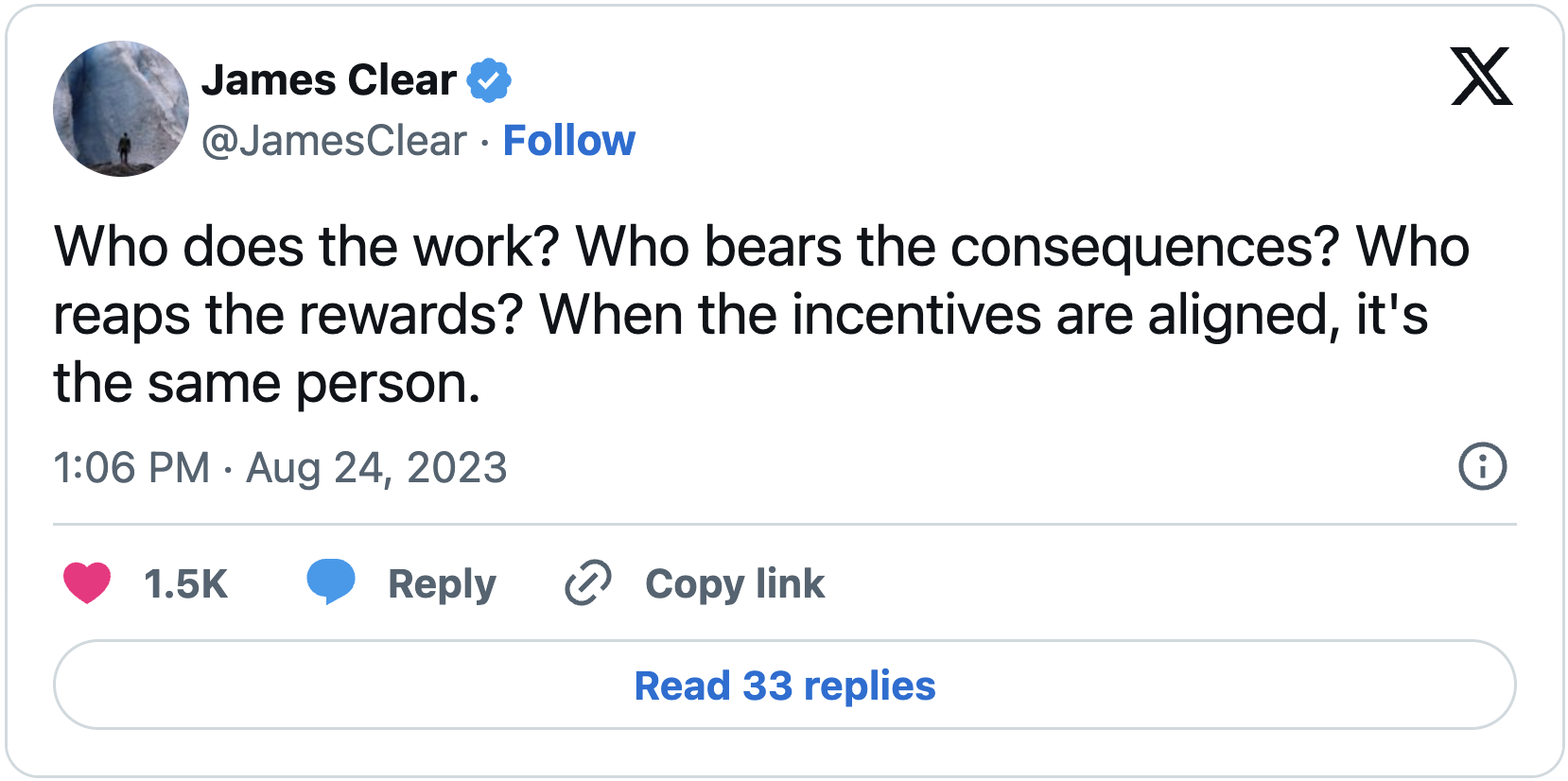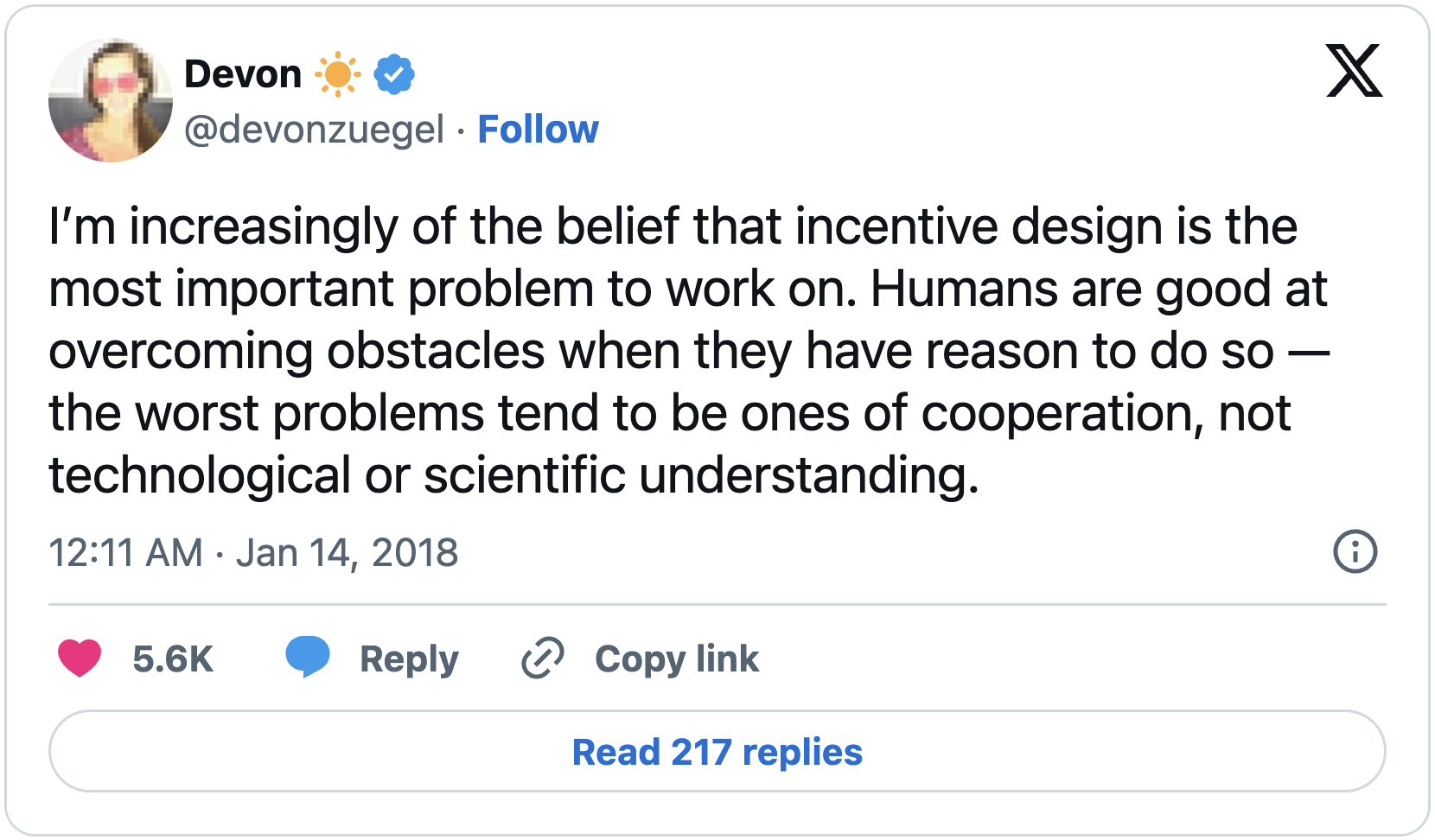The incentives of business ownership
Founders of small tech companies always seem the same.
They wake up early and eat a good breakfast. They’ve got a killer morning workout, doing squats or deadlifts, followed by 30 minutes of meditation. The perfect way to feel refreshed before a day full of work.
I think that most of us know that a schedule like this could improve our mood or performance. How do these business owners make it happen when their employees often don’t?
Maybe it’s their superior time management and prioritization skills… the same skills that qualified them to become business owners in the first place! They’ve got it together, and everything else, including their job, is a downstream consequence of that.
But what if it’s the other way around?
What if “becoming a business owner” was the thing that made them more likely to adopt healthy habits in the first place? Is that possible?
It sure is.
Nothing to lose and everything to gain
The founders I described above have a lot more to gain from a great morning routine than their employees do.
Many jobs are so routine and systematized that the output is mostly fixed. Think of assembly line work. These jobs have been intentionally designed so the success of the product doesn’t depend on whether an employee is having a bad day. This mitigates risk but it also means that there’s little incentive to do great work. When bad days don’t make a difference, good days don’t either.
Not only do business owners have open-ended work… they have incredible financial upsides when they do that work well. Owning a business (or part of a business) produces financial benefits in both the short term and long term. When you get more profits you can pay yourself more. When your brand grows in value, your business can be sold for more money in the future.
Having a job where 1) your work makes an impact and 2) that impact brings direct financial benefit, is a killer combination. Now, the only thing standing in your way is doing your best possible work. That’s a very different situation than being on an hourly wage, where you get paid the same no matter what you do.
People respond to incentives. When employees have bad incentives they’re less likely to invest in themselves (via a great morning routine, continuing education, or other forms of personal development). As a result, their health suffers, their motivation suffers, and the quality of their work suffers. This is why I’m such an advocate for profit-sharing, education benefits, and other business structures that align employer’s and employee’s incentives. It’s a win-win.
I do my best to invest in my health and happiness but since my willpower is unreliable, I spend a lot of time thinking about how I can use incentive design to get “future me” to make the right choices. As such, I’m always on the lookout for “killer combinations” of my own.

